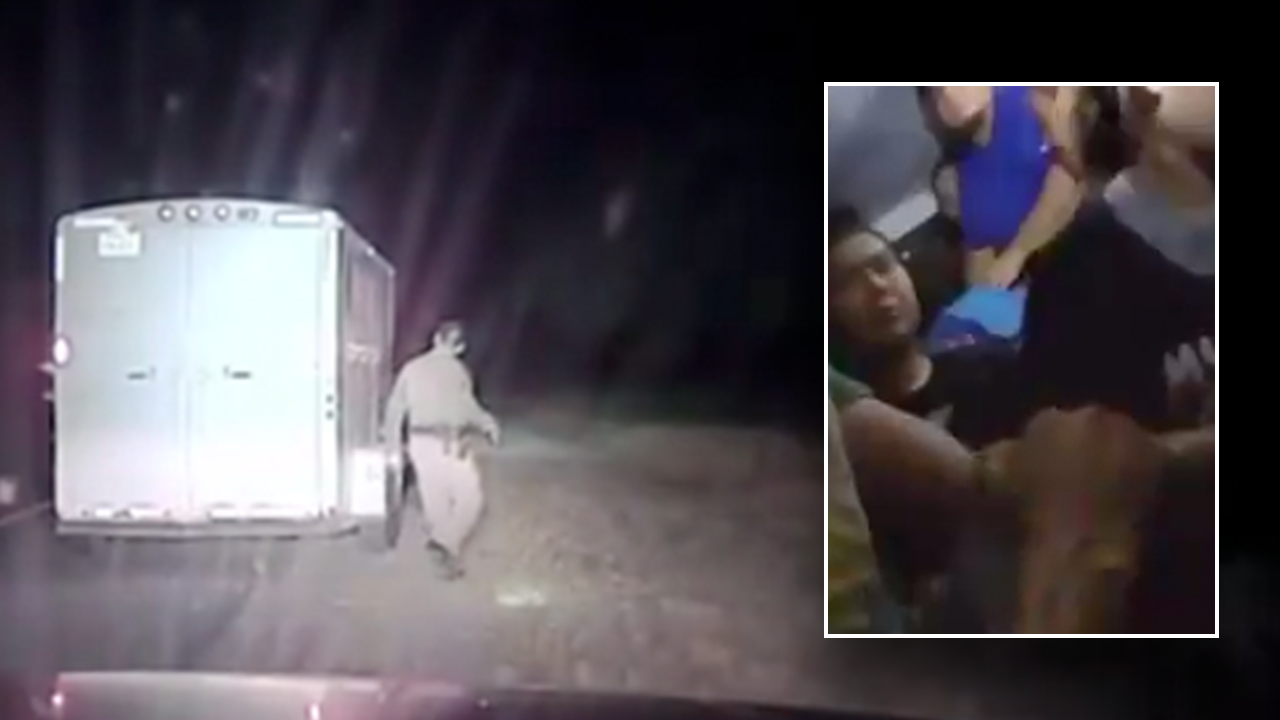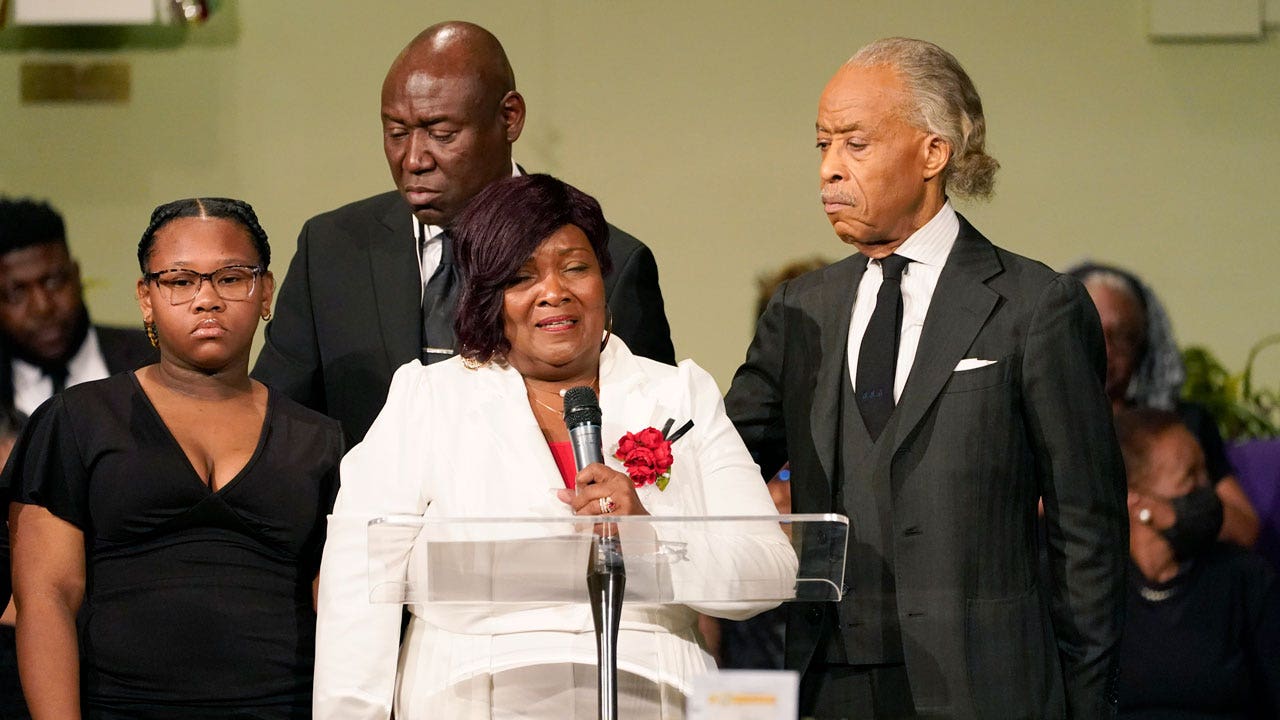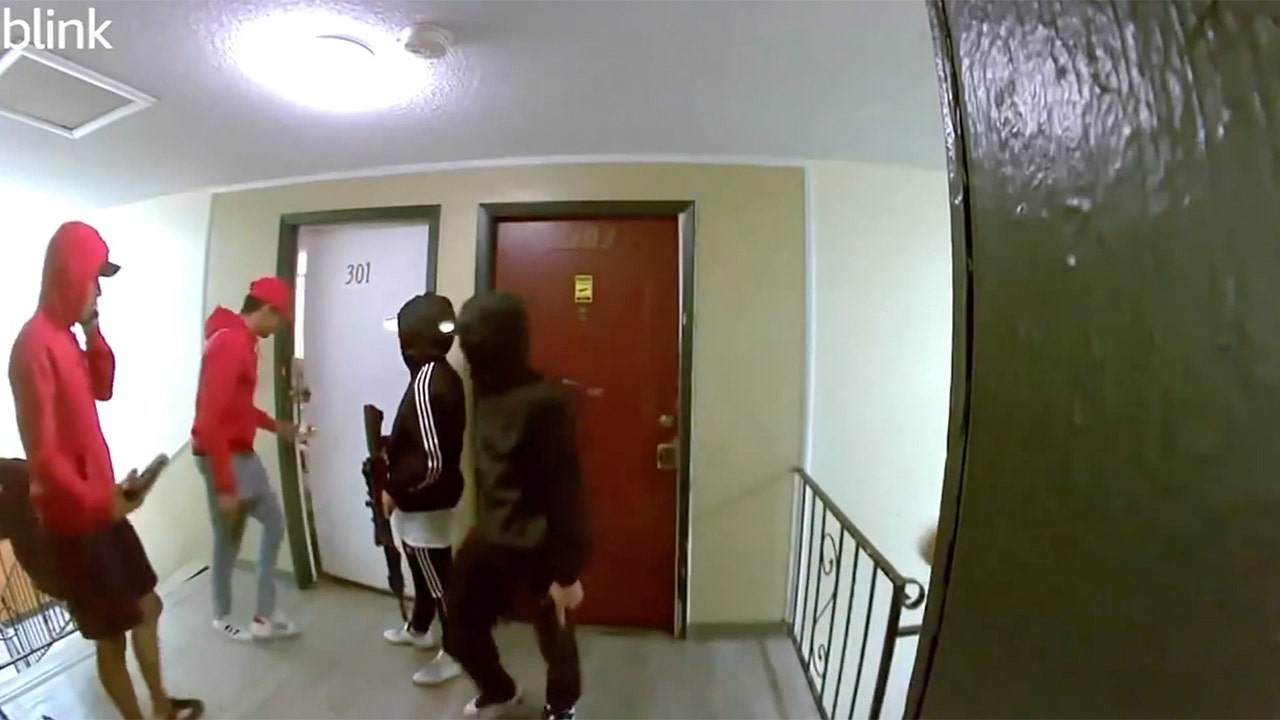Muhammad said he had found a better life in Russia. After emigrating from Tajikistan last fall, he began driving delivery vans in Siberia, enrolled his children in a local school, applied for a Russian passport and started planning to buy an apartment with the savings from his much higher salary.
The arrest of a group of Tajik citizens accused of carrying out the attack that killed 145 people at a Moscow concert hall last month has upended those plans, filling Muhammad with fear of being swept up in the ensuing crackdown on the Central Asian migrants who prop up Russia’s economy.
The attack, he said, has erased all the efforts his family made to fit into society. In a phone interview from the city of Novosibirsk, he added that he would move back to Tajikistan if the police or nationalist radicals were to target him.
“I’ll only have a hunk of bread, but at least I’ll be in my homeland, living without fear that someone will bang on my door,” said Muhammad, whose last name, like those of other migrants quoted in this story, is being withheld to protect them against possible retaliation.
The Russian police have responded to the terrorist attack, the most lethal in the country in decades, by raiding thousands of construction sites, dormitories, cafes and warehouses that employ and cater to migrants. Russian courts have deported thousands of foreigners after quick hearings on alleged immigration violations. And Russian officials have proposed new measures to restrict immigration.
The official crackdown has been accompanied by a spike in xenophobic attacks across Russia, according to local news media and rights groups, which have documented beatings, verbal abuse and racist graffiti directed against migrants.
The crackdown has exposed one of the main contradictions of wartime Russia, where nationalist fervor promoted by the government has brought xenophobia to new highs even as foreign workers have become an irreplaceable part of the country’s war effort.
As blue-collar Russian workers went off to fight in Ukraine, took jobs at armaments factories or left the country to avoid being drafted, citizens of Tajikistan and two other Central Asian countries have partly filled the void.
They have kept consumer goods flowing, built houses to satisfy the real estate boom fed by military spending and rebuilt occupied Ukrainian towns pummeled during the war. Some have signed up to fight for Russia, on the promise of windfall salaries and fast-track Russian passports.
But those needs are being measured against other priorities. On Tuesday, President Vladimir V. Putin made that clear in a speech to police officials. “Respect for our traditions, language, culture and history must be the determinant factor for those who want to come and live in Russia,” he said.
Igor Efremov, a Russian demographer, estimated that there were between three and four million migrants working in Russia at any given time. He said Russia’s total population stood at about 146 million.
A majority of these migrants — most of whom come to do manual work for months at a time — are from three poor former Soviet Republics in Central Asia: Tajikistan, Kyrgyzstan and Uzbekistan. These mostly Muslim countries have become increasingly dominant sources of migration to Russia as Western sanctions have made the country less attractive to many foreigners.
The concert hall massacre exposed the fragility of their positions. Because most migrants in Russia today come from countries with different languages and cultures and a different dominant religion, they have been especially exposed to harassment during a war that the Kremlin has presented as a struggle for the survival of Russia’s cultural identity.
“You walk by, and you hear these comments: ‘Get away from me, get far away from me,’” said Gulya, a Tajik house cleaner who has worked in Russia for nearly two decades. “I love Russia, I love it as my own, but people have become angry, aggressive,” said Gulya, who is considering returning home if tensions persist.
Valentina Chupik, a lawyer who provides legal aid to migrants in Russia, said on Monday that she had appealed 614 deportation orders since the terrorist attack. Another migrant-rights activist, Dmitri Zair-Bek, said he was aware of about 400 deportations in that period in St. Petersburg alone.
“We have never seen such a scale of anti-migrant operations,” Mr. Zair-Bek said in a phone interview.
Tajiks have proven especially vulnerable.
Tajikistan descended into a prolonged civil war soon after gaining independence, a conflict that has accelerated the spread of Islamic fundamentalism.
The country’s status as the poorest former Soviet state means there are few jobs available at home if people are sent back. And some Tajik citizens who sought refuge in Russia from the civil unrest at home said it was not safe for them to return.
Evgeni Varshaver, a Russian expert on migration, estimates that about a million Tajiks, or about a tenth of Tajikistan’s population, is in Russia at any given time.
Tajikistan’s poverty and political isolation make Tajiks especially likely to settle in Russia for good. Three out of four long-term foreign residents that Russia has gained since invading Ukraine came from Tajikistan, according to the Russian statistical agency.
Most Tajiks in Russia are male economic migrants who do jobs that are increasingly shunned by native Russians, such as in construction and agriculture. Many speak little Russian and work on the margins of the formal economy, making them especially vulnerable to abuse by employers and corrupt officials.
Apart from seasonal laborers, Russia remains the main destination for Tajikistan’s small class of professionals, who often view the Soviet era as a period of stability and relative personal freedoms compared with the upheavals of the civil war and rising Islamic fundamentalism that followed their country’s independence.
Fluent in Russian and well educated, these middle-class Tajiks tend to face fewer instances of xenophobia.
“I have seen how Tajiks get shouted at, how officials give them the runaround, just because they can,” said Safina, a Tajik professional who has worked in Russia. “But when I go to the same places, I get treated very well.”
Still, even those who are culturally integrated have been targets of criticism since the terrorist attack.
A conservative Russian commentator reported the Tajikistan-born singer Manizha Sangin to the prosecutors’ office after the singer called the brutal beatings of the Tajik suspects in the attack “public torture.” Ms. Sangin represented Russia at Eurovision in 2021 with the song “Russian Woman.”
Rights activists fear that the government’s treatment of the suspects helped fuel recent racist attacks against Tajiks.
Russian migration experts say the concert hall attack is likely to further shift the country’s migration debate toward national security priorities, at the expense of the economy. Various policymakers and conservative commentators have called for new laws to restrict migration as supporters of foreign labor in the economic ministries and big business have largely stayed silent.
A conservative businessman, Konstantin Malofeev, has created a policy institute to lobby for ways to limit migration.
“We are ready and want to live with Tajiks, Uzbeks, Kazakhs, Kyrgyz; they are our neighbors,” Mr. Malofeev said in a video interview from a Moscow office decorated with Christian Orthodox icons. But, he added, “these migrant workers should be much more Russified.”
The need for soldiers and military factory workers pushed Russian unemployment to a record low of 2.8 percent in February, creating acute labor shortages that are fueling inflation and destabilizing the economy, according to the Central Bank of Russia. The country’s rapidly declining population makes these shortages impossible to solve without foreign workers, migration experts say.
“The needs of employers are no longer considered,” Mr. Efremov, the demographer, said. “The most important thing is that the enemy doesn’t slip through.”
Milana Mazaeva, Nanna Heitmann and Oleg Matsnev contributed reporting.






